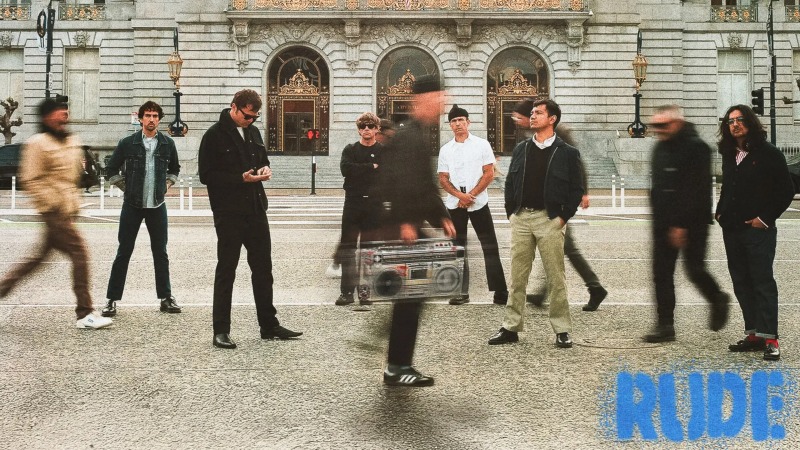Spiritual Cramp Resurrect Rude Energy
With catchy hooks, razor-sharp grooves, and a nod to the ‘70s rude boys of London, the Bay Area band delivers an urgent, irresistible hook-filled punk-rock riot.

Spiritual Cramp have tapped into something special on their sophomore album Rude, a nod to the budding UK punk, ska, and reggae scene of the 1970s. While these genres have persisted with new artists popping up daily, few bands have captured the right combination to truly emulate that period. Spiritual Cramp manage to do it five decades later, channeling London grit through San Francisco fog. It’s a sound they’ve been chasing since day one—those first EPs were all snarl and speed, but you could already hear the tug toward something catchier. Their debut flirted with that punk-meets-dub swagger, but Rude is the real arrival: confident, danceable, and steeped in the kind of attitude that made this genre of music exciting in the first place.
There are flashes of Julian Casablancas’ swagger woven into Rude, but a thread of indie sleaze isn’t what makes it special. Spiritual Cramp have been carving out their own lane for years, fine-tuning their mix of punk grit with a splash of reggae-dub groove until it hits just right. They came up in the same wave as TURNSTILE, Scowl, Militarie Gun, and Zulu, bands pushing hardcore toward something catchier, but where their peers lean into modern polish, Spiritual Cramp look backward to move forward. Rude feels like a love letter to the UK punk scene of the late seventies, when the genre was still young and unpredictable, soaked in ska, reggae, and basement-born energy, and you never knew what sound would come next. It’s raw, stylish, and just a hell of a lot of fun, the kind of record that bridges the past and present while proving that punk’s original spirit still has plenty of room to evolve.
-

-

-

-

-

-

-

-

-

-

-

-

-

-

-

-

-

-

-

-

-

-

-

-

-

-

-

-

-

-

-

-

-

-

-

-

-

-

-

-








































